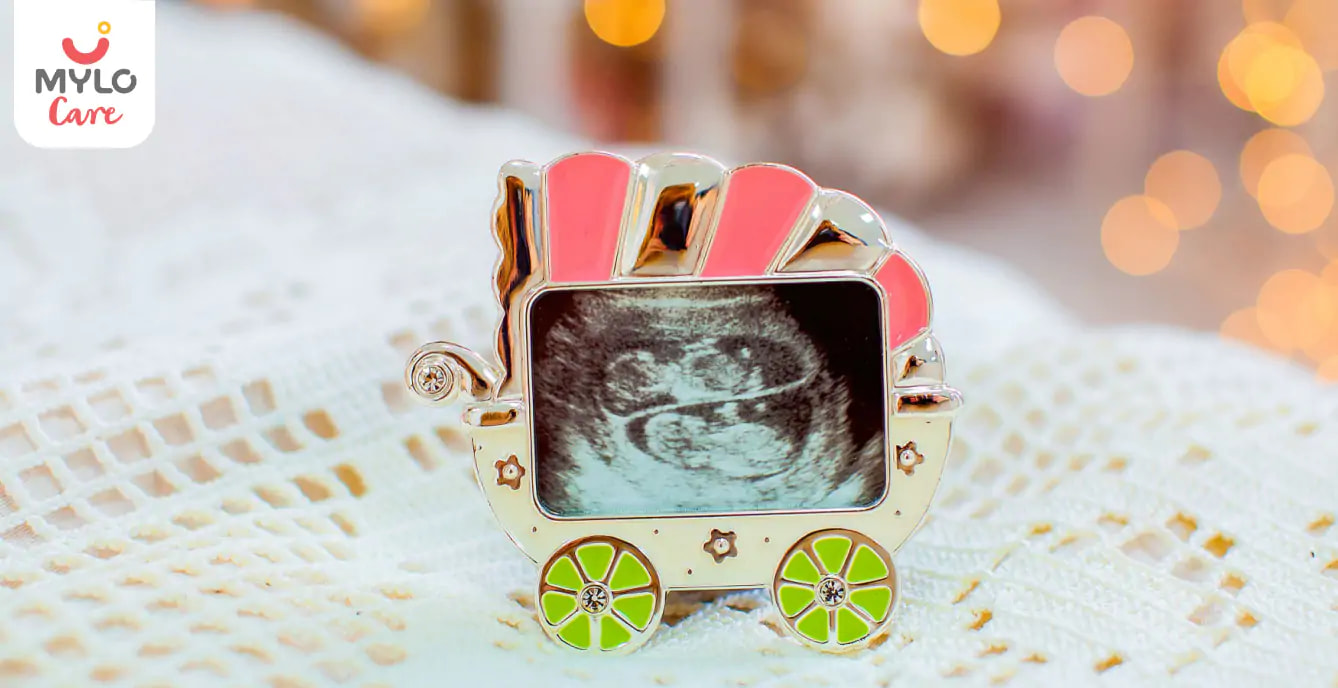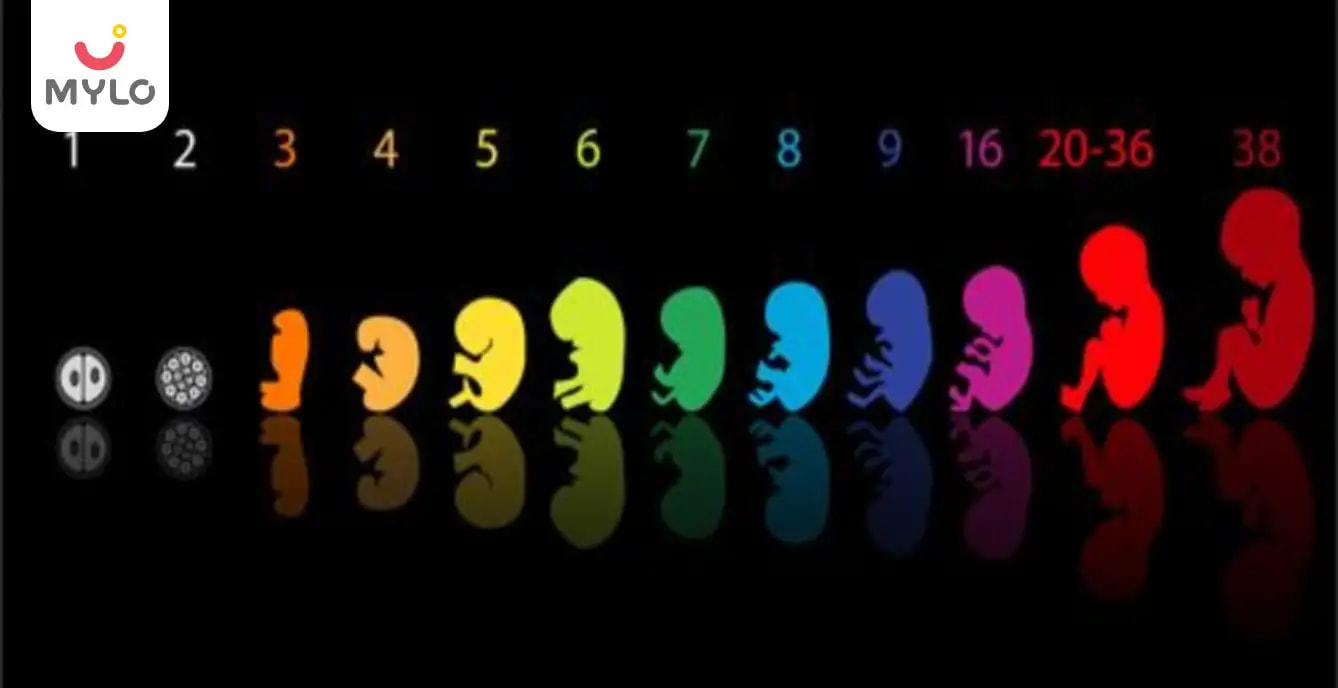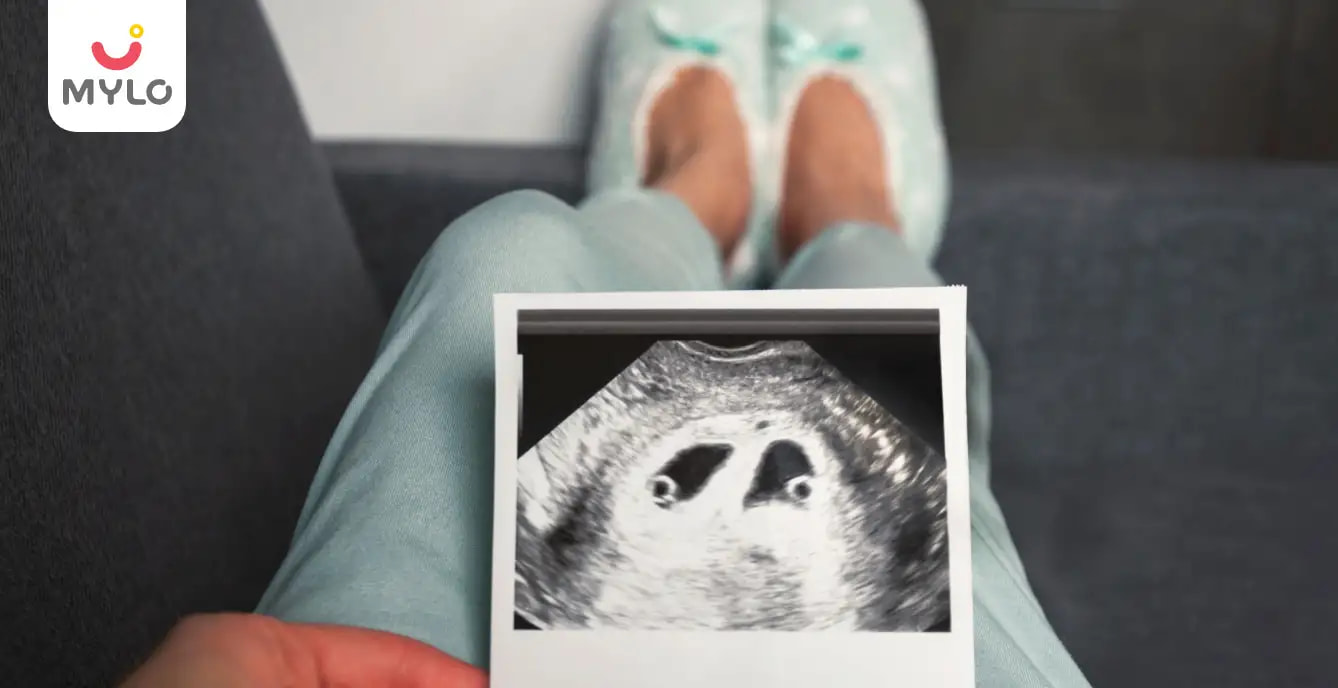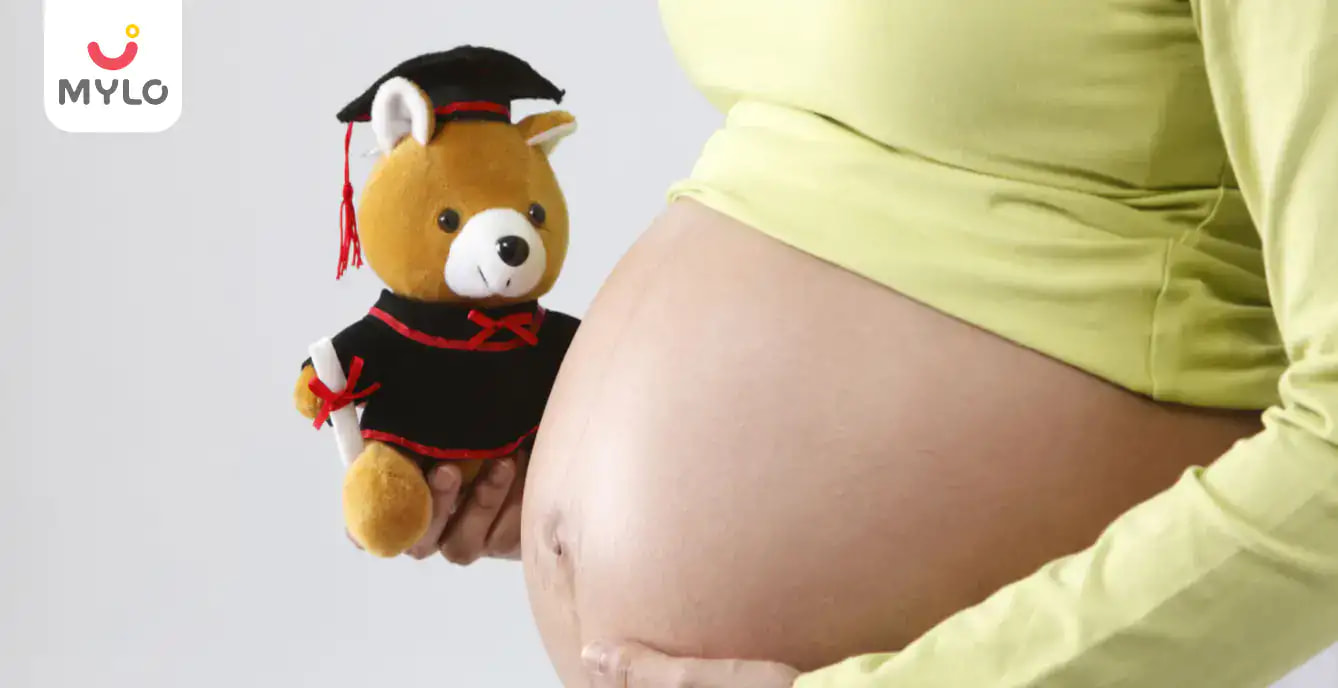Home

Twins & Triplets

What to Expect in the Eighth Week of Development of Your Twins in the Womb?
In this Article

Twins & Triplets
What to Expect in the Eighth Week of Development of Your Twins in the Womb?
Updated on 3 November 2023
If you're 8 weeks pregnant with twins in the womb, probably, you've already seen (or will soon see) your infants via ultrasound. Morning sickness, bloating, food cravings or dislike, exhaustion, breast changes, frequent urination, and increased vaginal discharge are all common pregnancy symptoms. Your twin infants will soon be called fetuses, growing at an alarming rate. Hearts that pump blood are now present in them, and growing brains, spinal cords, and lungs are also forming.
Eight weeks pregnant is when nausea and vomiting (also known as morning sickness) may begin to appear while recording pregnancy symptoms week by week, whether with a single child or twins. A possible contributing element to this illness is the pregnancy hormone human chorionic gonadotropin (hCG), albeit the actual cause or causes of this ailment remain unclear.
This uncomfortable sensation, which may be (but is not usually) more acute during a twin pregnancy, is not something anybody enjoys experiencing; nonetheless, many expectant mothers see it as a sign that their pregnancy is progressing well.
Symptoms of twins inside the womb at eight weeks
The likelihood is that by this point, you've gotten confirmation that you're pregnant through a positive pregnancy test and that you'll begin to experience pregnancy-related symptoms if you haven't already started to show signs of pregnancy. But don't be concerned if you aren't experiencing any significant changes — some women may not experience the side effects as strongly or as quickly as others.
1. Nausea and vomiting
Even though it is often referred to as "morning sickness," pregnant nausea may strike at any time of day. This nausea, which is typical in the first trimester of pregnancy and may or may not entail vomiting, may occur throughout the pregnancy. Nausea and vomitting are common symptoms of twins in the womb. Most likely, the pregnancy hormones HCG (human chorionic gonadotropin) and estrogen are to blame for the symptoms of morning sickness.
If you are experiencing nausea, eating and drinking in little quantities regularly, having something tiny to eat as soon as you wake up, and sticking to bland foods for a short period are all excellent strategies to alleviate or prevent it from occurring.
2. Bloating
Progesterone, the pregnancy hormone, causes digestion to slow down, which may cause you to feel bloated in the early stages of your pregnancy. This bloating may also play a role in developing nausea during pregnancy.
3. Cravings and aversion for food
You may have certain dietary cravings or aversions that you cannot control during your pregnancy. Every woman has her own set of preferences for cuisine, which might vary from one another.
4. Fatigue
Fatigue is a typical pregnancy symptom, particularly in the early stages of pregnancy. When the hormone progesterone levels grow, you may experience fatigue, but this is also beneficial since it helps to support your body's needs when you are expecting a child.
5. Breast changes
Because of the increase in hormones, you may experience increased sensitivity and tenderness in your breasts and increased size and firmness compared to what you're used to. In addition, it's possible that the region surrounding your nipple, known as the areola, may darken as well.
6. Frequent urination
Pregnancy hormones and an increased volume of blood flow in your body can cause you to have the desire to pee more often than normal throughout your pregnancy, so plan accordingly. This will likely worsen as your uterus continues to stretch and thicken, placing strain on your bladder.
7. Increased discharge
During pregnancy, the increase in estrogen production will most likely result in increased vaginal discharge. However, this is quite normal. However, if you have green, yellow, or thick cheese-like discharge, foul-smelling discharge, or your vaginal area is red, itchy, or irritated, you should consult your healthcare provider right away. Almost any signs or symptoms might indicate an infection or other condition.



Written by
Shaveta Gupta
An expert in content marketing, Shaveta is an alumnus of IIT, Bombay, she knows what the audience is looking for. Mother of a 6 year old, she has been instrumental in planning the content strategy at Mylo.
Read MoreGet baby's diet chart, and growth tips

Related Articles
RECENTLY PUBLISHED ARTICLES
our most recent articles

Diet & Nutrition
গর্ভাবস্থায় আলুবোখরা: উপকারিতা ও ঝুঁকি | Prunes During Pregnancy: Benefits & Risks in Bengali

Diet & Nutrition
গর্ভাবস্থায় হিং | ঝুঁকি, সুবিধা এবং অন্যান্য চিকিৎসা | Hing During Pregnancy | Risks, Benefits & Other Treatments in Bengali

Women Specific Issues
স্তনের উপর সাদা দাগ: লক্ষণ, কারণ এবং চিকিৎসা | White Spots on Nipple: Causes, Symptoms, and Treatments in Bengali

Diet & Nutrition
গর্ভাবস্থায় পোহা: উপকারিতা, ধরণ এবং রেসিপি | Poha During Pregnancy: Benefits, Types & Recipes in Bengali

Diet & Nutrition
গর্ভাবস্থায় মাছ: উপকারিতা এবং ঝুঁকি | Fish In Pregnancy: Benefits and Risks in Bengali

Diet & Nutrition
গর্ভাবস্থায় রেড ওয়াইন: পার্শ্ব প্রতিক্রিয়া এবং নির্দেশিকা | Red Wine During Pregnancy: Side Effects & Guidelines in Bengali
- ইনার থাই চ্যাফিং: কারণ, উপসর্গ এবং চিকিৎসা | Inner Thigh Chafing: Causes, Symptoms & Treatment in Bengali
- গর্ভাবস্থায় ব্রাউন রাইস: উপকারিতা ও সতর্কতা | Brown Rice During Pregnancy: Benefits & Precautions in Bengali
- Velamentous Cord Insertion - Precautions, Results & Safety
- Unlock the Secret to Flawless Skin: 7 Must-Have Qualities in a Face Serum
- Unlock the Secret to Radiant Skin: How Vitamin C Serum Can Transform Your Complexion
- Gender No Bar: 10 Reasons Why Everyone Needs a Body Lotion
- Unlock the Secret to Radiant Skin How to Choose the Perfect Body Lotion for Your Skin Type
- Top 10 Reasons to Apply a Body Lotion After Every Bath
- Communication in Toddlers: Milestones & Activities
- How to Improve Vocabulary for Toddlers?
- A Comprehensive Guide to Understanding Placenta Accreta
- Vulvovaginitis in Toddlers Causes, Symptoms and Treatment
- A Comprehensive Guide to Understanding Cerebral Palsy in Children
- Bitter Taste in Mouth During Pregnancy: Understanding the Causes and Remedies


AWARDS AND RECOGNITION

Mylo wins Forbes D2C Disruptor award

Mylo wins The Economic Times Promising Brands 2022
AS SEEN IN

- Mylo Care: Effective and science-backed personal care and wellness solutions for a joyful you.
- Mylo Baby: Science-backed, gentle and effective personal care & hygiene range for your little one.
- Mylo Community: Trusted and empathetic community of 10mn+ parents and experts.
Product Categories
baby carrier | baby soap | baby wipes | stretch marks cream | baby cream | baby shampoo | baby massage oil | baby hair oil | stretch marks oil | baby body wash | baby powder | baby lotion | diaper rash cream | newborn diapers | teether | baby kajal | baby diapers | cloth diapers |








